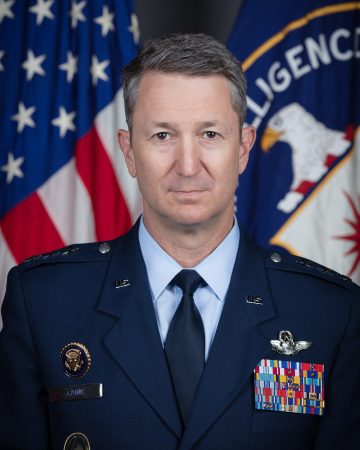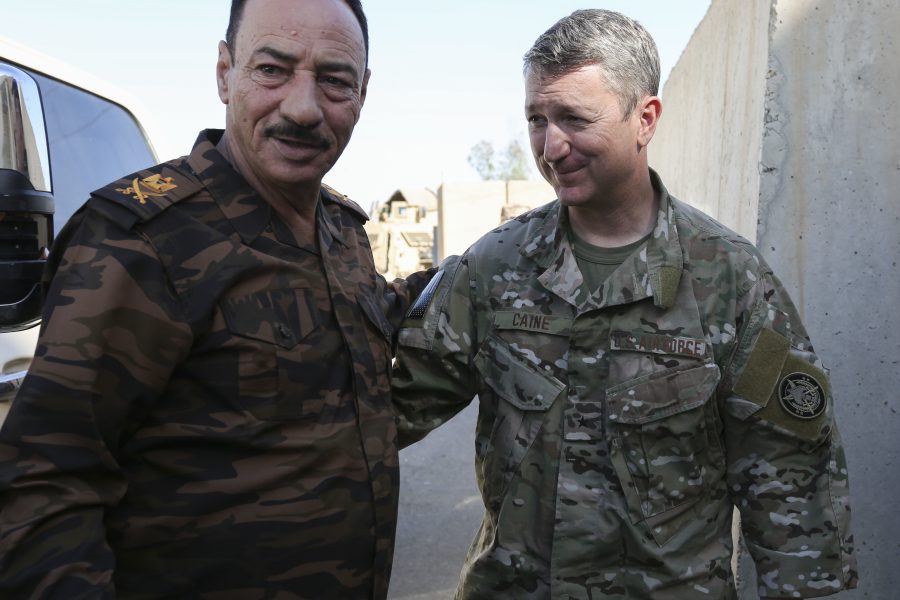Lt. Gen. John Daniel Caine—President Donald Trump’s pick to replace Gen. Charles Q. Brown Jr. as Chairman of the Joint Chiefs of Staff—is poised to become the first Air National Guardsman elevated to the nation’s highest uniformed role.
Caine’s Guard status is one of several ways he is an unusual, though not quite unprecedented, pick for CJCS. He is retired, he was never a four-star general, and he never held one of the major roles typically required for Chairman, meaning Trump must grant him a waiver to take on the job.
Still, it seems likely the Senate will approve his nomination and make him the 22nd Chairman of the Joint Chiefs.
Unconventional
Under the Goldwater-Nichols Act of 1986, which reorganized the senior military leadership of the U.S., the Chairman must be a four-star general or admiral selected from among the Vice Chairman, the service chiefs, or the Combatant Commanders. That provision was included in part to ensure that a candidate had the necessary cross-service seasoning and diplomatic skills that come with speaking for the entire U.S. military, often with foreign leaders.
However, the law also included a provision giving the president latitude to choose someone who does not meet that criteria, saying he or she can “waive” the requirements “if the President determines such action is necessary in the national interest.”
Similarly, while Caine, 56, retired at the end of 2024, he would not be the first general recalled to service. President George W. Bush recalled Gen. Peter Schoomaker from retirement to serve as Army Chief of Staff in 2003.
And other officers have made an unexpected jump from three stars to on the Joint Chiefs, albeit never in the top job: Lt. Gen. Edward C. Meyer was a surprising choice to get a fourth star and become Army Chief of Staff in 1979.
A former member of the Senate Armed Services Committee staff told Air & Space Forces Magazine that he sees Caine as likely to be approved by lawmakers.
“The pattern is clear, to me, that they’ll probably let [the president] have the man he wants as his closest military advisor,” he said.

F-16 Pilot
In 1990, along with his economics degree from Virginia Military Institute, Caine earned a commission through the AFROTC and won a coveted spot in the Euro-NATO undergraduate pilot training program.
Before completing pilot training, though, Caine worried that he might become a “banked pilot”—one sent to a non-flying job as the Air Force downsized—he said last month on the “Afterburn” podcast. So he applied to 85 Guard units and was picked up by the 174th Fighter Wing in Syracuse, N.Y. He later served with the D.C. Air Guard. He deployed several times to the Middle East, flying with Operations Southern Watch, Enduring Freedom, and Iraqi Freedom, and helped lead the “Scud Hunt” operation in Iraq.
Of his 2,800 flying hours, more than 100 were in combat.
Caine was one of the commanders of the operation to defend Washington, D.C. in the immediate aftermath of the Sept. 11, 2001, attacks on the Pentagon and the World Trade Center in New York. He later worked at the Air Guard Test Center in Arizona, saying the mission was “getting combat capability to the Guard in the field right now,” such as night vision goggles, targeting pods, datalinks, and large bombs.
Varied Experience
Beyond his time as a pilot, Caine’s military career has included a vast array of experience.
From 2005-2006, he served as a White House fellow with the Department of Agriculture, where much of his time was spent in the government response to Hurricane Katrina.
He then moved to the position of Policy Director for Counterterrorism on the White House Homeland Security Council through 2008, describing the job as coordinating interagency efforts against terrorism.
He then served a stint as commander of a Joint Special Operations Task Force in Iraq, but moved back and forth between Special Operations and the D.C. Guard for a number of years.
He also worked in Special Operations Command for a number of years, serving as Assistant to the SOCOM Vice Commander and Assistant Commanding General, Joint Special Operations Command. From 2018-2019, he was Deputy Commanding General of U.S. Central Command’s Special Ops Component and Deputy Commanding Officer of Special Operations Joint Task Force in Iraq, concurrently.
It was during that time that President Trump met Caine, in 2018 during Operation Inherent Resolve—the campaign against the Islamic State group. Trump said he came away from the encounter impressed that Caine believed the conflict could be resolved quickly by observing less restraint in air attacks.
Caine’s career then took him into highly secretive jobs, where he worked as the Director of Special Programs at the Pentagon’s Special Access Programs Office, and later as the Pentagon’s liaison to the CIA, his last government posting.
Privately, Caine, whose official biography describes him as a “serial entrepreneur and investor,” co-founded a regional airline and other businesses. After retirement, he joined Shield Capital, a firm that works in cybersecurity.
Air Force personnel that have served with and under Caine describe him as “thoughtful,” “pragmatic” and occasionally, “a hard ass,” enforcing high standards among the troops. “He doesn’t rattle,” said one. “He can navigate complex tasks.”
One pilot called Caine “apolitical” and said his nontraditional career “will serve him well” if he is confirmed.
He “will not come in with a bias” regarding the services, the pilot said, having developed strong appreciation for all service contributions during his special operations experiences.
